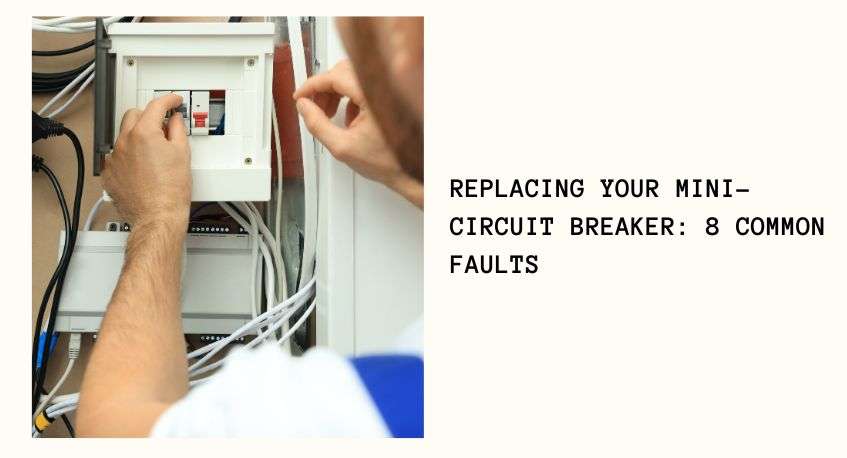 teddy@teddyele.com
teddy@teddyele.com +86 13968749891
+86 13968749891


 +86 13968749891
+86 13968749891

Aug 9,2024
Replacing a mini-circuit breaker (MCB) is a task that many homeowners and professionals encounter when dealing with electrical systems. While the process may seem straightforward, there are common mistakes that can lead to serious problems. In this guide, we'll explore the eight most frequent faults people make when replacing mini-circuit breakers, and we'll provide expert advice on how to avoid them.
• Problem: One of the most common errors is selecting an Miniature Circuit Breaker (MCB) that is not compatible with your electrical system. This can lead to inefficient operation, potential overloads, and even fire hazards.
• Solution: Always ensure that the replacement breaker matches the specifications of the existing one, including the amperage rating, trip curve, and brand compatibility. Consulting the original circuit diagram or a qualified electrician can help prevent this issue.
• Problem: Failing to disconnect the power supply before replacing the mini-circuit breaker can result in severe electrical shocks or equipment damage.
• Solution: Before starting any work, turn off the main power supply and verify with a voltage tester that the circuit is de-energized. Safety should always be your top priority.
• Problem: Another frequent mistake is miswiring the MCB, which can cause the circuit to malfunction or create dangerous electrical shorts.
• Solution: Carefully follow the wiring diagram for your specific circuit breaker model. If unsure, label wires before disconnecting them to ensure proper reconnection. Using a professional-grade wiring diagram or hiring an electrician is highly recommended.
• Problem: Terminal screws that are too tight can damage the wires, while those that are too loose can result in poor connections, leading to overheating or electrical failure.
• Solution: Use a torque screwdriver to apply the manufacturer's recommended torque setting. This ensures the screws are tightened just right, maintaining a secure connection without damaging the components.
• Problem: Ignoring signs of damage on the existing circuit breaker or associated wiring can lead to repeated failures or more extensive electrical problems.
• Solution: Inspect the breaker and wiring for any signs of wear, corrosion, or damage before replacing the MCB. Replace any damaged components to ensure the longevity and safety of your electrical system.
• Problem: Using the wrong tools can lead to improper installation or damage to the MCB, potentially causing future electrical issues.
• Solution: Always use the correct tools designed for electrical work, such as insulated screwdrivers, voltage testers, and wire strippers. Investing in high-quality tools ensures a safer and more efficient installation process.
• Problem: Failing to test the newly installed MCB can leave you unaware of potential faults until they cause more significant issues.
• Solution: After installation, test the circuit breaker by turning the power back on and checking the circuit's functionality. Use a multimeter to verify that the breaker is operating correctly and that there are no shorts or other issues.
• Problem: Attempting to replace an MCB without the necessary knowledge or experience can result in mistakes that compromise the safety and functionality of your electrical system.
• Solution: If you’re unsure about any step in the process, don't hesitate to consult a licensed electrician. Professional guidance can save you time, money, and ensure that the job is done right.
Replacing a mini-circuit breaker is more than just a simple swap; it requires attention to detail and adherence to safety protocols. By avoiding these common faults and following the guidelines provided, you can ensure a safe and successful replacement that maintains the integrity of your electrical system.